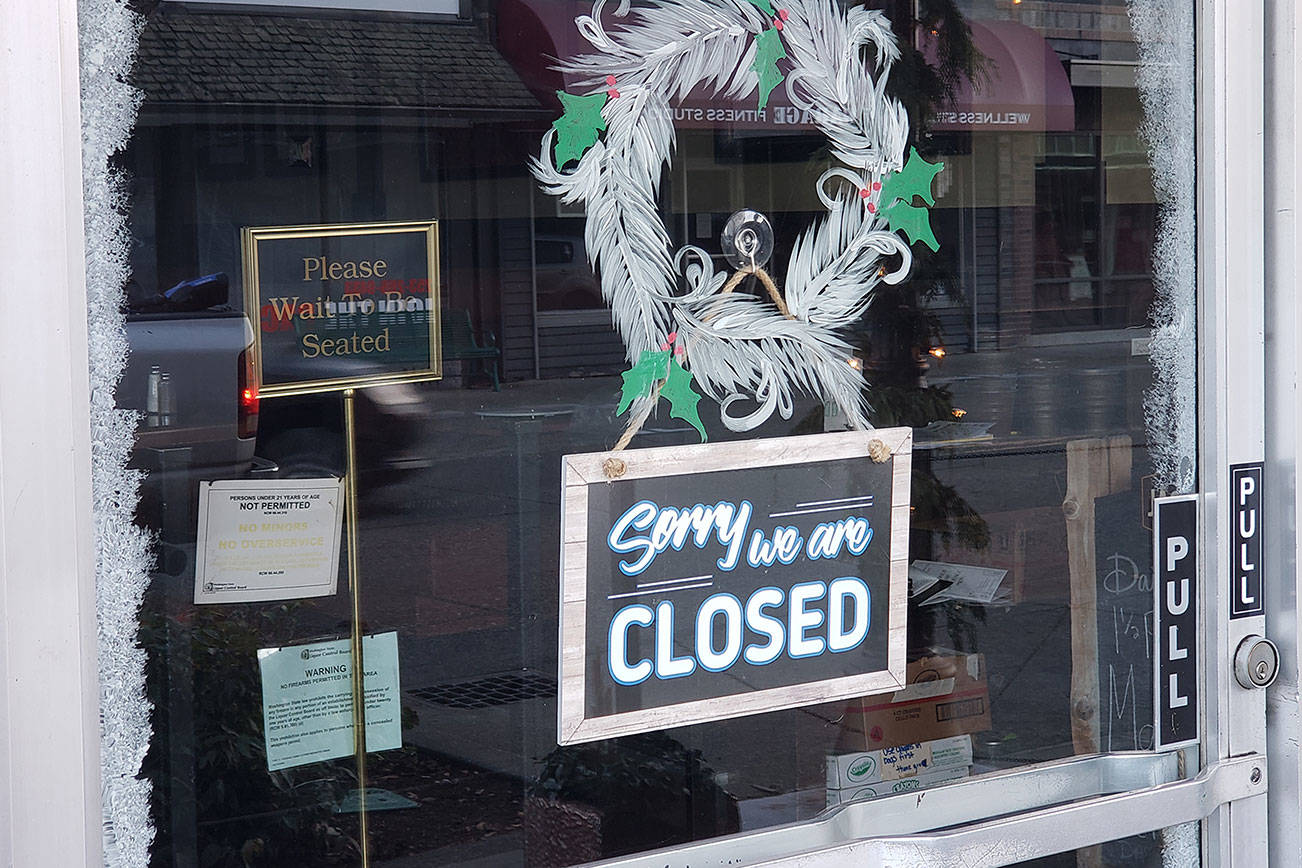OLYMPIA — Gov. Jay Inslee announced Tuesday (Dec. 8) he is extending through the holidays, to Jan. 4, statewide restrictions on businesses and social gatherings intended to curb spread of the coronavirus, as key pandemic metrics continue to worsen locally and across Washington.
“Just like thanksgiving, all of us are going to have an opportunity to save lives while continuing to be responsible and not have large gatherings,” Inslee said during a televised news conference. “It was the right thing to do in November. It will be the right thing to do in December.”
He’s also adding another $50 million to the state’s $135 million relief fund for affected businesses.
The newest rules — which prohibit indoor dining and closed gyms, movie theaters and other businesses — took effect in November. They were previously set to expire Dec. 14.
At the time they were imposed, the governor called it the “most dangerous public health day” the state had faced in 100 years. Later in November, Inslee announced the state would more than double an economic relief package for businesses and workers.
Early data show the spread of the virus may be slowing, but it’s too early to tell, Inslee said. It could take another week to see if cases rose due to Thanksgiving gatherings.
“Our sense is that we have decreased the acceleration, and that’s good news,” state Secretary of Health Dr. John Wiesman said. “At the time the governor implemented these rollbacks, we were accelerated very quickly over just a matter of days. Now we need to exercise the patience of giving the data enough time to see if we are indeed approaching a plateau or not.”
Statewide, hospitalizations and deaths from COVID are still on the rise.
The virus is spreading especially at long-term care homes, where residents are most vulnerable to severe illness or death from COVID.
Inslee’s announcement came as state and county leaders were preparing for the first shipments of a COVID vaccine.
The state anticipates 219,000 doses of the Pfizer vaccine and 182,000 doses from Moderna by the end of the month, Wiesman said.
With limited early supply, the first doses will go to high-risk health care workers and residents of long-term care facilities.
It’ll take weeks to vaccinate everyone in those groups, Wiesman said.



